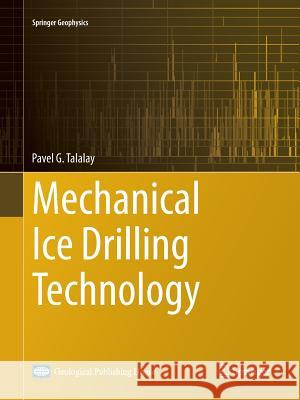Mechanical Ice Drilling Technology » książka
topmenu
Mechanical Ice Drilling Technology
ISBN-13: 9789811091933 / Angielski / Miękka / 2018 / 284 str.
Kategorie BISAC:
Wydawca:
Springer
Seria wydawnicza:
Język:
Angielski
ISBN-13:
9789811091933
Rok wydania:
2018
Wydanie:
Softcover Repri
Ilość stron:
284
Waga:
0.68 kg
Wymiary:
27.94 x 20.96 x 1.6
Oprawa:
Miękka
Wolumenów:
01
Dodatkowe informacje:
Wydanie ilustrowane











